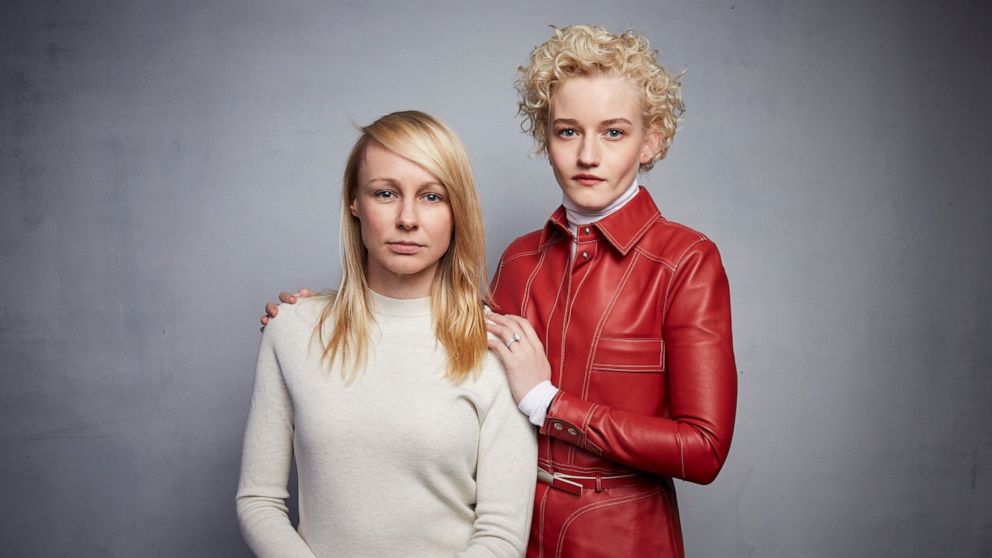Sexual harassment
Sexual harassment “The Assistant” is one of the first narrative films to come out of the #MeToo movement and the Harvey Weinstein scandal
By
JAKE COYLE AP Film Writer
January 30, 2020, 6:12 PM
5 min read
PARK CITY, Utah —
“The Assistant” is one of the first narrative films to come out of the #MeToo movement and the Harvey Weinstein scandal. The film, written and directed by Kitty Green, features a predatory studio executive modeled after Weinstein, but he is unseen throughout the movie. “The Assistant” focuses instead on the toxic work environment around him, detailing a day in the life of a low-level assistant.
Green, an Australian filmmaker, has previously made documentaries that attempt to peel away the superficial sheen of media sensationalism. Her debut, “Ukraine Is Not a Brothel,” profiled a Ukrainian feminist group famous for its topless protests. Her 2017 documentary, “Casting JonBenet,” used local Colorado actors to get beyond the rumors and tabloid headlines of the child pageant queen’s unsolved murder.
In 2017, Green was working on a film about sexual abuse on college campuses when the Weinstein case broke. She quickly pivoted.
“I’ve always been interested in the way these events, especially involving women, are covered in the press,” Green said in an interview. “I was a little concerned that the media seemed to be focusing on these evil men and not on the system that surrounds them and the structures that keeps them in power. I wanted to look at it from a different angle rather than looking at it from the top down. I wanted to look at it from the bottom up.”
“The Assistant,” which recently screened at the Sundance Film Festival, arrives in limited theaters Friday just as the Weinstein trial is raging. (Weinstein has pleaded not guilty to two counts of rape, one count of criminal sexual act and two counts of predatory sexual assault.) Hollywood assistants, like the one named Jane and played by Julia Garner in the film, are also rebelling. Since last October, #PayUpHollywood has sought to pressure the industry to give its assistants fairer treatment and better pay.
But while “The Assistant” may be reminiscent of current headlines, it takes a deliberately restrained approach to portraying gender dynamics in the workplace. Where “Bombshell,” the Fox News drama, is starry and showy in its depiction of sexual harassment at a media company, “The Assistant” is muted and sober.
“One of the things she mentioned when we first met up was she wanted the film to be very quiet. And I think that was important because the subject is so loud,” says Garner, the 25-year-old “Ozark” actress. “It’s actually more powerful when you have a really quiet film, almost silent the whole time because the subject is silence.”
In the film, Jane attends methodically to the rigors of her job: answering phone calls; printing out headshots of actresses; lying about her boss’s whereabouts to his wife; unpacking a shipment of erectile dysfunction drugs; cleaning stains off her boss’s couch.
“The Assistant” keeps to Jane’s perspective, capturing her interplay with the higher-ranking male assistants next to her. They assume she’ll entertain the boss’ children when they visit. Phone calls from the wife get sent to her. She takes the lunch orders. Green depicts how power operates in the office and the disorienting nature a toxic environment that has grown rigid through years of practice.
“A lot of people, women and men were victims and they weren’t even aware that they were victims. It was like a whole system in a way,” says Garner. “It’s like it’s an out of body experience. They’re getting thrown in to an awful situation.”
Green interviewed, she says, some 100 people who had worked as assistants in preparation for the film. She was stuck by the patterns in their accounts about how their ascents in the industry were stymied by how they were regarded in the workplace. Most left the film industry.
“I don’t have any experience being an assistant, not at a company here, but in Australia I did. And I did notice how my confidence was sort of stripped away from me. It really does shake your sense of self when people don’t take you seriously,” says Green. “I had to get the coffee because I was a woman. It’s absurd and really does make you question your ambitions and makes you question whether you can get to these positions of power. It makes it feel kind of unreachable.”
Green believes that as valuable as it is for women to land high-profile jobs in the industry, it’s equally vital at the lower levels. “We need to get more women with their foot in the door in the first place,” she says.
The revolt by Hollywood assistants, Green says, is a step in the right direction.
“It’s really great that people are finally starting to reanalyze these power structures and the way they work,” says Green. “It’s fabulous to see what they’re doing.”
———
Follow AP Film Writer Jake Coyle on Twitter at: http://twitter.com/jakecoyleAP
